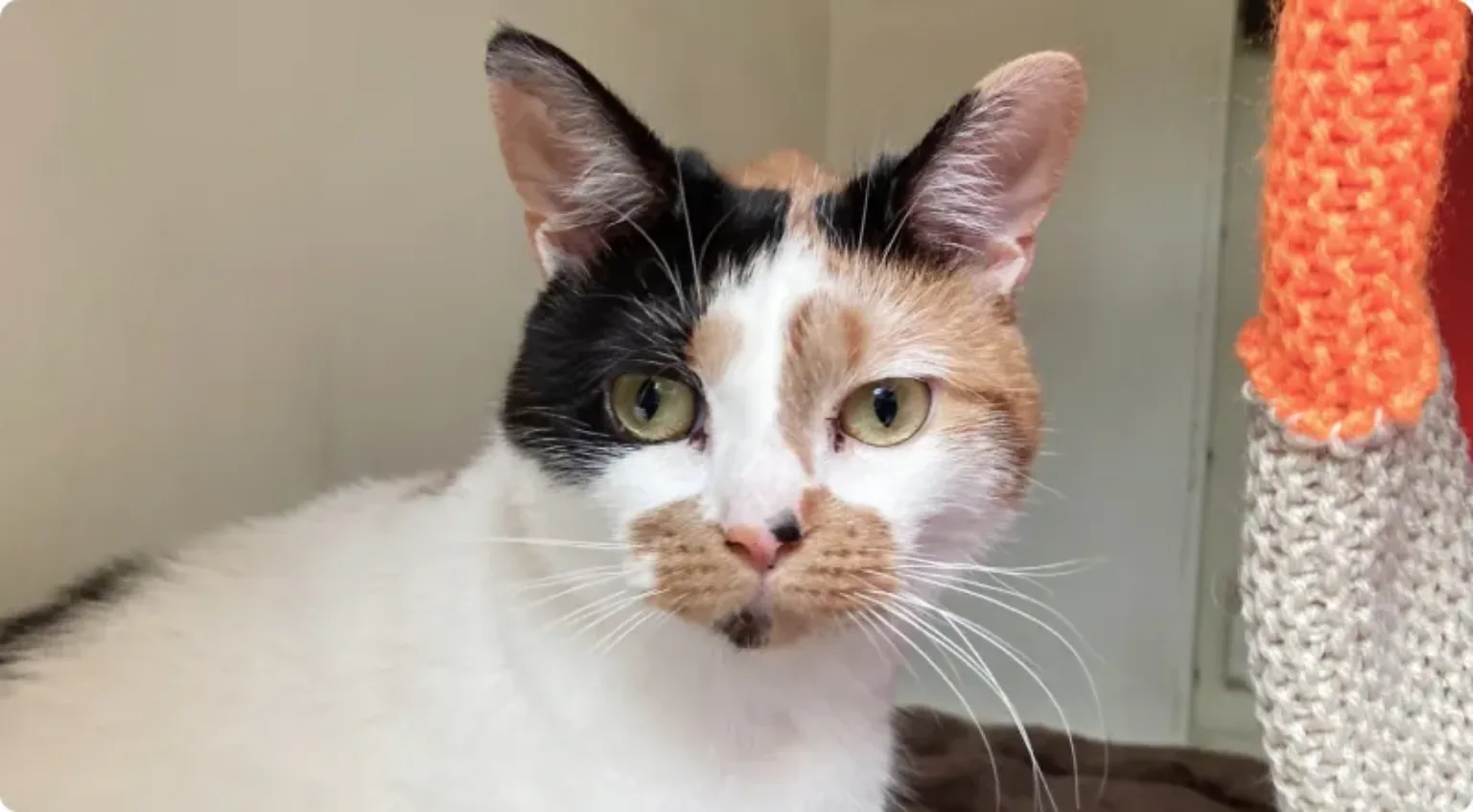When it comes to pets, we've all got questions
Ever feel like your pet is from another planet?

Cats are living longer due to better living standards and advancements in veterinary care. The average lifespan of a cat is thought to be 16 years, many can live into their twenties.
An older cat requires less supervision than a young cat, their energy levels are much lower and they already have experience of home life. Individual cats will have their own personality, but in general older cats tend to be more homely and relaxed. They can still be playful and enjoy going outside, but this is often less frequent than a younger cat.
Older cats can be a real pleasure to care for. They can make wonderful companions who really enjoy their home comforts, and you won’t need to worry about them using your curtains as a climbing frame.
Consider whether you will insure your older cat. Most cats will experience some type of medical issue in their lifetime, many of which are related to old age. Think about how you will pay for veterinary care, can you afford it without insurance?
You should take your cat for regular OAP checks at your local vet– they will be able to monitor your cat’s physical health. We recommend routine blood tests for cats over the age of ten as well as regular blood pressure checks. This can help pick up early signs of any illness.
Some of the most common signs of illness are listed below, please consult your vet if you spot any of the signs listed below:
Most cats will suffer from age related illnesses such as kidney failure or hyperthyroidism. These are often misdiagnosed by owners, who put the symptoms down to old age. Keep an eye out for the symptoms – usually an increase or decrease in normal behaviours, such as eating, tolerance levels, urinating, drinking or grooming.
If you spot these types of conditions early enough, they can be managed responsibly and you and your cat can extra years of happy life together.
Treat your cat regularly with flea and worm products from the vet – they are still at the same risk of parasites even if they spend more time inside than out. You should also keep a close eye on your cat’s claws, they may struggle to keep their claws from growing too long and you may need to clip them regularly.
Older cats tend to thrive on routine and consistency in the home. They may have a lower tolerance of routine change and may become less adaptable as they age; if they do become short tempered on a regular basis you should consult a vet as it can be sign of stress or illness.
Older cats are prone to dental problems and need their teeth checked regularly. Your vet can advise you about dental care on a regular basis to help protect your cat’s teeth in the future. There are many products you can use to keep your cat’s teeth clean – including toothpaste, dental biscuits and seaweed plaque treatments. If you keep your cat’s teeth in good condition then you can avoid the need for regular dental treatment under anaesthetic, where the vet will clean and possibly remove teeth.
As cats begin to get older its fairly common for them to start showing signs of arthritis. It may be more difficult for them to get around by jumping and climbing. Creating steps and graduated levels to reach areas can make this much easier for them. It will also help prevent them causing an injury.
You may also find that they are more reluctant to go outside, or that they don’t venture as far. This is normal behaviour for an older cat, but it’s always worth providing lots of shaded areas in the summer and secluded areas that they can relax in if they wish. Some older cats will find it difficult to negotiate the cat flap as they may have done previously and alternative options to outside will be required.
For many cats, it can be uncomfortable to lean down to get to their food and water bowls. Especially as they get a little older. For this reason, we would suggest having these items raised off the floor slightly to enable them to eat at a more comfortable, natural level.
As our feline friends get older, they may find it more difficult to climb in and out of the litter tray. They may also find it uncomfortable to squat down as they used to. For these reasons we suggest looking at a tray with a low entry point for easy access and raised sides to help keep everything in the tray. Remember, litter trays should be a suitable size for them to stand up and easily turn around in.
Despite their age, it’s important to allow your older cat access to toys for whenever they fancy having a play. Although it may not always happen, when they do it’s likely going to be at a steady pace and far less energetic, however they will still have their typical instincts.
Due to the likelihood of them living a much more laid back and relaxed lifestyle as they age, it’s important to make sure they are staying within a healthy weight bracket. Take a look at how to manage their health here.
There is never a shortage of older cats at our rehoming centres looking for a new place to call their own, with many years of life left to enjoy.
Unfortunately, older cats are more difficult to rehome. But by offering one of our senior residents a loving new home you will be making a personal contribution to animal welfare. Take a look at all of our older cats currently looking for homes.